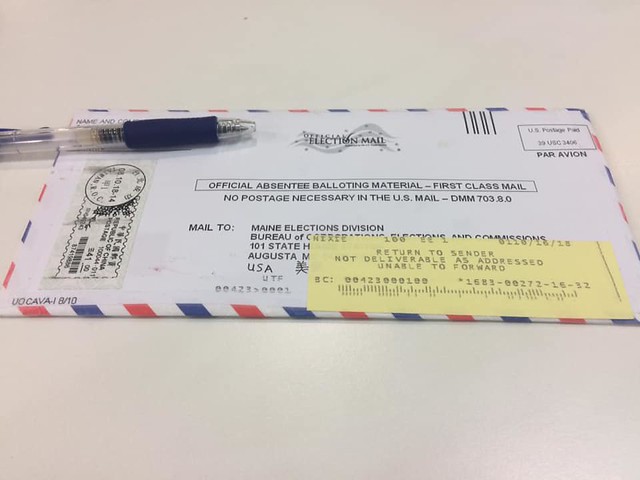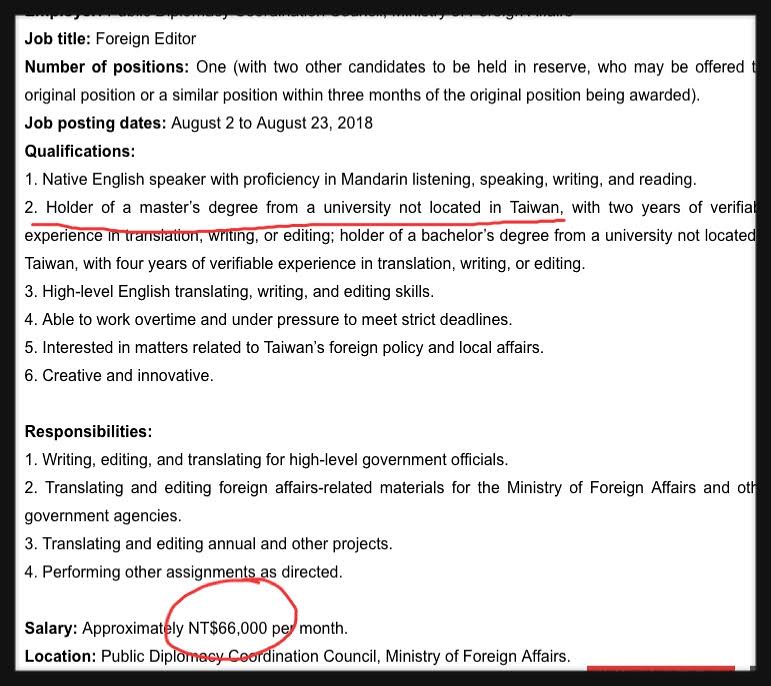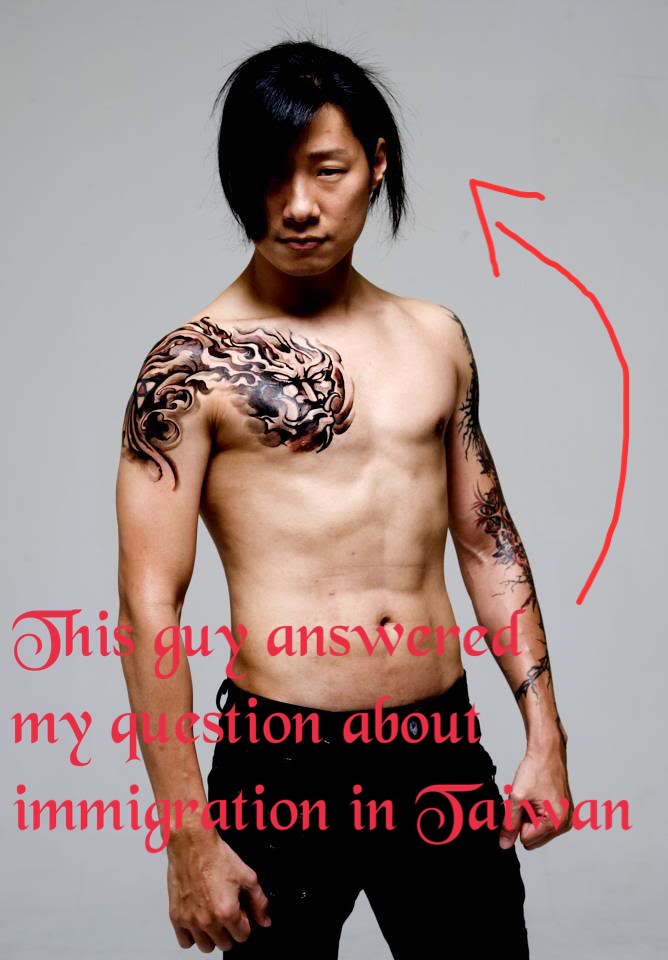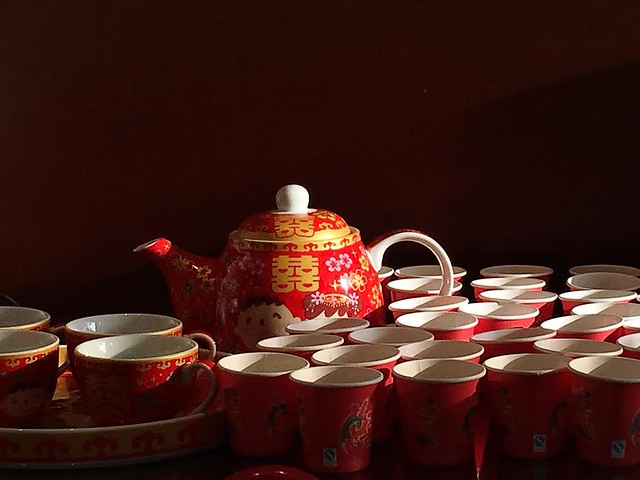 |
| Silhouettes of a visitor and a foreign resident in Taiwan |
Perhaps an explosive title, but hear me out. I'm going to talk mostly about Taiwan in this post, but the ideas I want to express can be applied to more or less any country (there may be a few exceptions that I'm not aware of - but by and large this is a global problem). Otherwise, let's just jump right in.
In Taiwan, it's fairly easy for professionals to immigrate and gain permanent residency, at least compared to much of the rest of the world. If you are a professional with at least two years' experience in your field or a Master's degree in any field (which has to be a face-to-face program and in some cases, excludes part-time programs) and someone will hire you, you can come to Taiwan with few problems. If you stay for five years, you can get permanent residency. That's actually not bad by global standards. It's much harder to get a visa to work in most Western countries, and permanent residency (e.g. a green card) can take ages. Of course, some are easier than others.
But it is discriminatory - if you're from a family that is middle class or wealthy, you're more likely to have access to the education you need to get hired. You're more likely to speak an international language (such as English, though for Taiwan, Mandarin is a huge help), because you had access to that same education which probably included it. You probably also come from a worldlier 'family culture' that would have encouraged knowing such a language: families where parents and relatives speak a foreign language are more likely to have offspring who also grow up to speak that language.
So, off the bat, any sort of points-based or 'professional' based visa system is automatically classist, because mostly people born into certain social classes have the access to the education and training they need to get hired and obtain a visa in a country like Taiwan (or Australia, or the US, or...etc.)
If you come from a 'developed' country, many (or most) of which are majority-white for historical reasons that are deeply unfair, you are far more likely to be born into such a family. What is the likelihood of, say, a European being born into circumstances that would allow them these advantages, compared to, say, someone from Southeast Asia outside Singapore? A lot greater. So what are your chances of meeting visa requirements calibrated to attract 'professionals' if you already come from a developed (and therefore more likely - though not necessarily - majority white) country? Comparatively speaking, how likely are you to be able to meet those same requirements if you come from a developing country that is almost certainly not white? Anecdotal evidence does not count. "I'm white but my life was tough" does not count - that's not statistical likelihood. "I'm from Vietnam but my family was rich" is also not statistical likelihood. On average, what are your chances?
Since race intersects with class - the color line is the power line is the poverty line - and you are simply more likely to be from a privileged background if you are white - such a system also gives an unfair advantage to people who are white. There are exceptions for sure, but again, we're talking averages here.
In Taiwan's case, I simply don't care if the goal is to attract certain kinds of professionals, in part because doing so is simply inherently classist (and therefore racist) - and that is exactly how Taiwan's immigration system works, both in terms of getting visas to come here, getting permanent residency, and getting citizenship. If you qualify for a professional visa, permanent residency is fairly easy, but if you come here to study - say, you are one of the Southeast Asian students that Taiwan hopes to attract - that doesn't count, and it can be difficult to transition. If you are a blue-collar worker, there's no path at all. To be a citizen, you have to be even more 'qualified', which probably means coming from an even wealthier background, or have 'Chinese ancestry' (which is a law that's obliquely about race).
You can come here and seek a better life, but probably only if your previous life was comparatively privileged, and you can stay forever, but you're probably already really privileged if qualify just isn't a good look.
I also believe that it doesn't actually achieve Taiwan's goals. The birthrate is falling, and while I don't necessarily think "we must unceasingly increase our population so the young can support the old" is a good long-term plan - Taiwan's easily habitable areas are already densely populated and there is finite space and resources - the best way to ensure population stability is to loosen immigration requirements. A lot of these immigrants will marry and have children locally, which is a huge bonus for Taiwan. Not just professionals: everyone.
In addition, I'm not at all convinced that the visa requirements and citizenship, plum blossom and gold card requirements actually meet Taiwan's needs. Taiwanese media routinely talks about the need to train more vocational workers, there is an oversupply of local workers for white-collar jobs (which is one reason wages are low, though not the only one), and with a low birthrate, Taiwan's labor force depends on immigration. Yes, this is true even despite the brain drain due to low wages and stressful, borderline-tyrannical office culture. And yet, it's especially true for blue-collar workers, because local vocational training is not particularly good and not highly-respected.
It would simply be smarter and truly meet Taiwan's needs, then, to relax rules for blue-collar immigrants, not just white-collar ones. So why have white collar workers been specifically prioritized? (That's a rhetorical question. The answers are racism and classism.)
And, of course, that's not even getting into what white collar workers Taiwan actually needs compared to whom it is trying to attract. With an initiative to become "bilingual by 2030", you'd think they'd want more qualified teachers and teacher trainers who can train up newly-hired local and foreign teachers, and yet for the education sector, only "associate professors", not regular teachers, qualify for dual nationality. That makes no sense at all.
And finally, it's simply the right thing to do. A place - whether that's a country, region or city - prospers when it is open to everyone seeking a better life, and the drawbacks are few. Yes, an influx of labor may cause short-term drops in wages, but those tend to recover. Yes, increased multiculturalism can cause friction, but it doesn't have to be that way, and the advantages of being exposed to people whose backgrounds and worldviews are unlike your own outweigh the drawbacks. Plus, it's a super great way to not be racist! They bring talent and creativity as well as hard work. They open businesses, get married, start families. They fill needs and niches in society. They matter, even if they don't come with a pre-fab education or specific work experience.
In other words, it's not about who you are when you come. Or it shouldn't be. It's who you become after you arrive.
I want to insert a little story about how I came here and taught English with very few qualifications (some teaching experience in a variety of settings, from children to adults, from monolingual to multilingual, in the US and outside of it, both English and native-speaker literacy, but no formal training.) I want to talk about how the only way I got to where I am now - the person who trains people like my former self - is because of the opportunities I could only access after I got to Taiwan. I want to talk about how I could never have afforded my subsequent training and education with the low purchasing power my American existence felt like it was dooming me to. But I won't (I mean, other than the fact that I just did). I grew up with English as my first language, and standard American English at that. I'm white. I was privileged enough to be born into a family that, with some difficulty, sent me to university. I'm already privileged, so my story isn't the point.
Otherwise, if you say you support immigration to Taiwan but you only mean immigration for the already-privileged, you don't really support immigration. You support classist, and therefore racist, immigration policy. You support people who look and sound like me, but not anyone really different from you. I mean that for Taiwanese as well: yes, we are different, from different backgrounds. Yes, this might lead to some differences in worldview. But, educated Taiwanese readers who can read this in English, you and I have more in common because of our class background than either of us have in common with someone from a truly marginalized community. Especially if you are Han Taiwanese - Han privilege is absolutely a thing, and you know it.
If those other people like us are Asian - say, Hong Kongers, Singaporeans or Japanese - then they are just that much more similar to you, coming from the same region, though not the same culture and society.
Do you really want to support only people who don't seem so different - people like me - or do you really want to support Taiwan being an international society where everyone can seek a better life?
Taiwan is already a multicultural society - though the rate fluctuates, the number of Taiwanese children with a foreign parent has always been higher than a lot of people realize. After all, most of the time, those foreign parents are Asian, so it's hard to tell. For the past few centuries, this country has had foreign travelers, residents, colonizers and spouses interwoven into its cultural and historical fabric. Although there's a 'majority' culture, it's only a monoculture if you want to believe it is (and if you think 'monoculture' includes other foreigners if those foreigners happen to be Asian).
I see no reason why that can't be reflected in a better, more egalitarian, more welcoming and less racist immigration policy.








